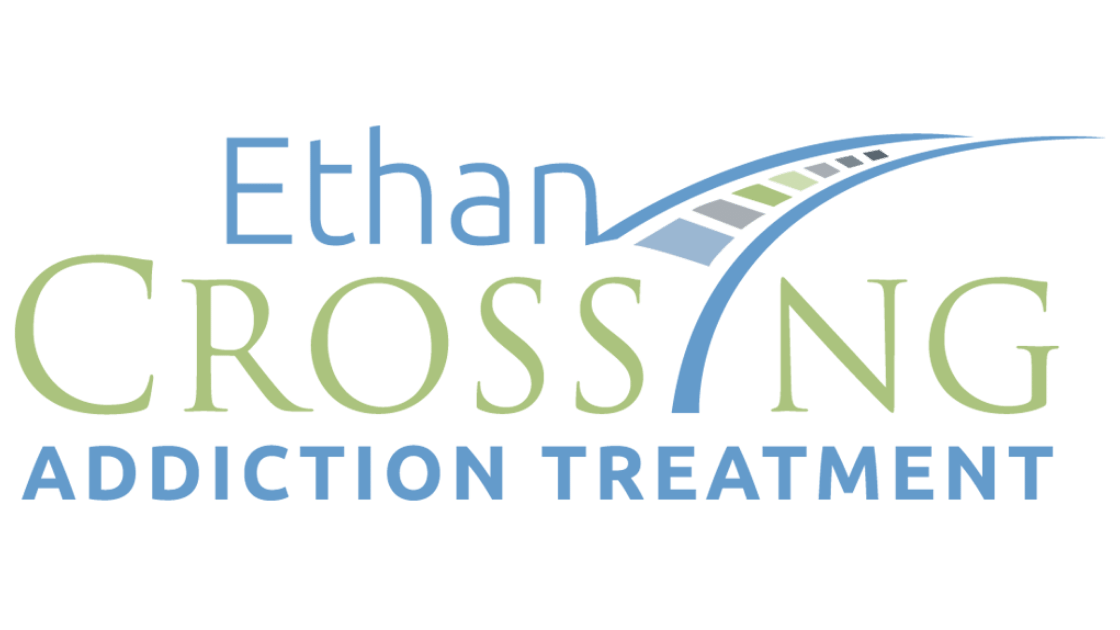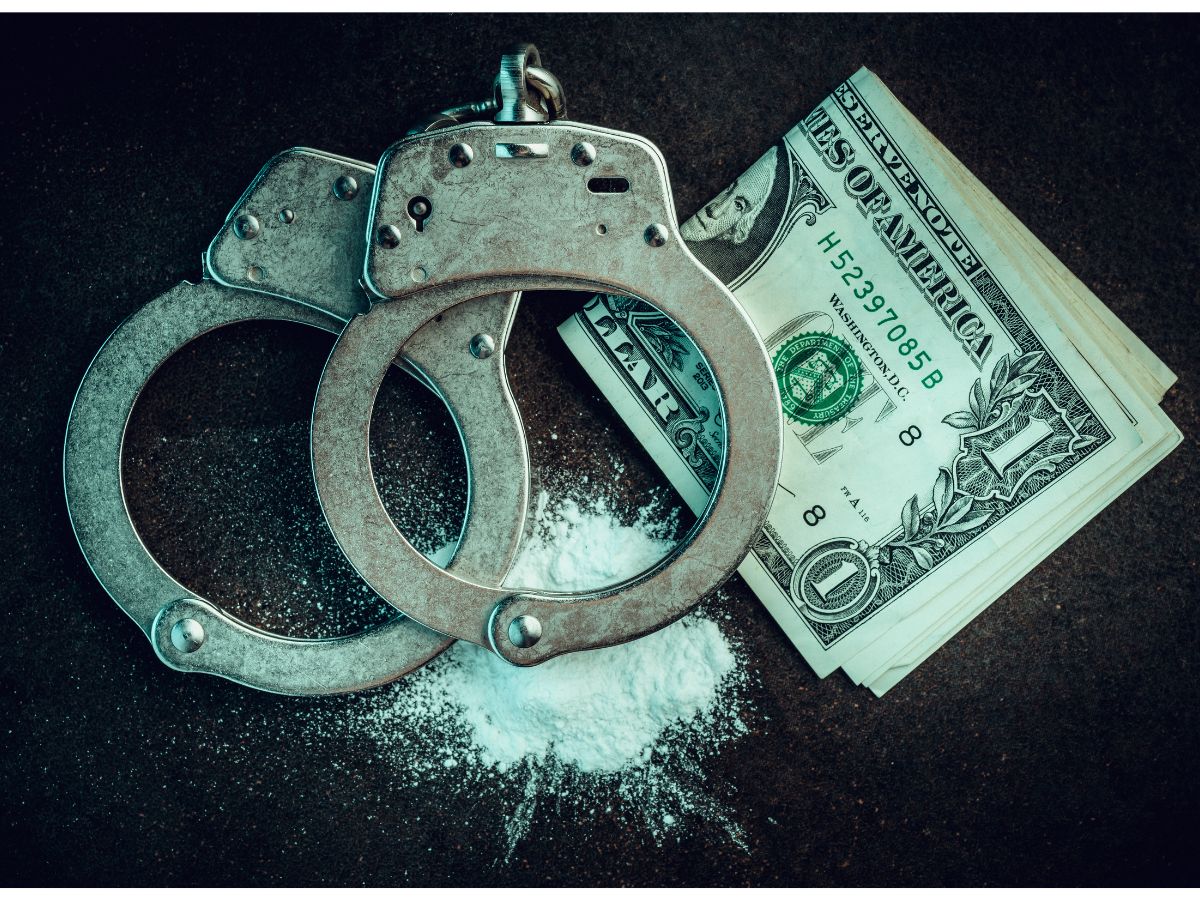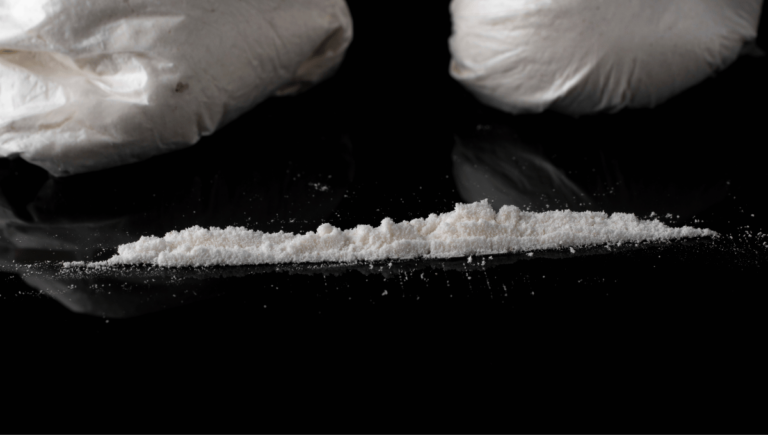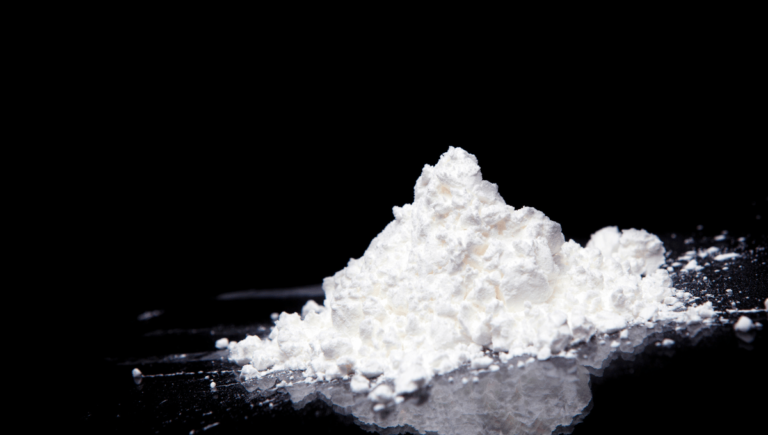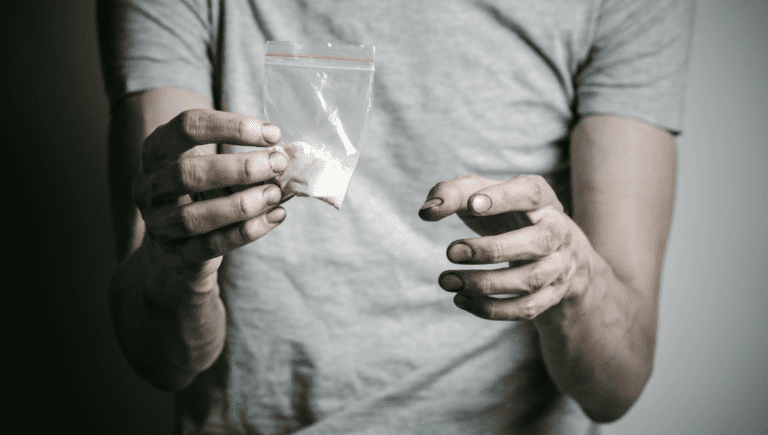Cocaine is an illegal stimulant that speeds up the workings of the brain. Long-term cocaine use can lead to depression, psychosis, and heart problems among other issues.
Cocaine is a stimulant which means it raises the heart rate and blood pressure. From one to three minutes after taking cocaine, the person has an intense feeling of pleasure called “a rush.” The “rush” or euphoria occurs because cocaine taps into the brain’s chemical reward system making the user feel good. This feeling can last for at least 15 minutes or even longer. Cocaine also affects the brain’s reward center.
The reward center releases special chemicals called neurotransmitters. Cocaine releases neurotransmitters, which tell the person’s brain that they feel good. When tolerance to cocaine is developed it takes more and more to achieve the same euphoric feeling again. It is reported that 1,800 Americans experiment with cocaine for the first time each day.
Jump To Section
How Long Does Cocaine Stay In Your System?
Blood testing for blood, saliva, urine, or hair follicles all show varying lengths of time that the drug stays in a human’s body. All of the tests range from 24 hours to three months.
Cocaine is a Schedule II controlled substance because of its high potential for abuse and severe psychological and physical dependence. It is available legally for use in certain medical and surgical settings, but not legal for a prescription. Its recreational use is illegal in the United States.
What Does Cocaine Look Like?
Cocaine is a white powdery substance that reacts with the body’s central nervous system, producing energy and euphoria. It is most commonly snorted, but can also be smoked (also known as “freebasing”) or dissolved in water and injected. Cocaine is also referred to as coke, blow, or powder.
History Of Cocaine
Cocaine is made from the coca leaves of the South American coca plant. For thousands of years now, coca plants have been chewed by individuals who inhabit the areas of the Amazon Rainforest and Andes Mountains where coca plants grow. In 1850, European scientists first isolated cocaine from coca leaves and called it a medical “wonder drug.” Cocaine was so widely used in medicine that it was put in Coca-Cola one of the most widely successful beverage companies in the world. After being ruled an illegal substance, cocaine still makes its way into the united states and fuels the drug trade with many movies being developed around its illegal drug trade including the “Cocaine Cowboys” Netflix documentary and Scarface. Experts now recognize cocaine as one of the most addictive substances on Earth.
Cocaine Addiction Statistics
Here are some statistics on cocaine abuse and dependency:
- 19% of people reported having used illicit drugs in 2018.
- In 2019, 35% of minors in grades 8 through 12 reported having used a substance in their lifetime.
- 12% of all people aged 12 or over report having used illicit drugs within the past month, making them current users in 2018.
- Drug use is most common in the 18-to-25 age group in 2018, with 39% of all people reporting current drug use.
- 47% of all young people use illegal drugs at least once by the time they leave high school
Cocaine Withdrawal Timeline
Just like cocaine overdose symptoms, cocaine withdrawal affects everyone differently. For some people, a day of strong emotions followed by a long sleep is enough. For others, peak cocaine withdrawal symptoms can last for weeks. Different factors such as frequency of abuse, age, and amount used all play a factor in withdrawal symptoms and timeline.
Treatment For Cocaine Abuse
Treatment for cocaine addiction is possible! Treatment options include:
- Medical detox
- Residential treatment
- Partial-hospitalization
- Intensive outpatient
- Alumni care
Within these options, you will receive the care you deserve by people who have had the same struggles as you do. Group therapy and 1:1 therapy is provided to help you fully heal and move forward into a life you want to live. Family therapy, cognitive behavioral therapy, and other modalities will also support you in living substance-free.
Treating A Cocaine Addiction
Addiction to cocaine can be hard to beat but it is possible and many do fully recover. If you want to take your life back from cocaine addiction and begin to move forward, we can help. Visit our admissions page to start your journey to recovery.
